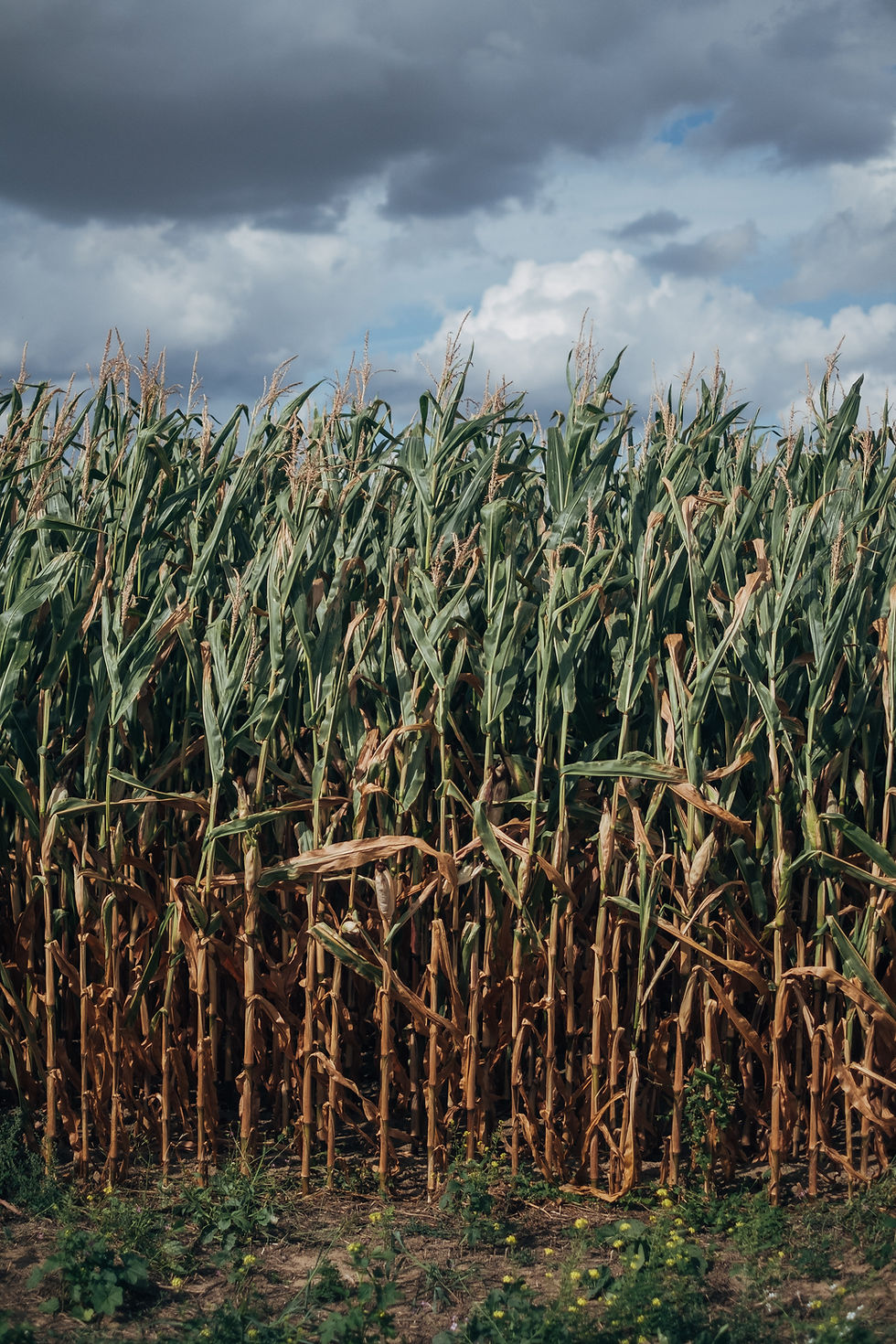Sugar Cane Alcohol: What It Is, How It’s Made, And Why It Matters
- Boxed-In Mushrooms
- Oct 1, 2025
- 4 min read
What Is Sugar Cane Alcohol
Sugar cane alcohol is high-purity ethanol distilled from sugarcane materials such as fresh cane juice, syrup, or molasses. At very high proof it’s classed as a neutral spirit (95% ABV or higher) with little to no aroma or taste, suitable for beverages, foods, and herbal extraction. In U.S. regulation, “neutral spirits or alcohol” are spirits distilled from any material at or above 95% ABV; “rum” is cane-derived spirit distilled below 95% that retains character, which is different from neutral cane alcohol used as a solvent. Alcohol and Tobacco Tax and Trade Bureau
Some suppliers explicitly market neutral sugarcane alcohol for foods, flavors, and extracts because of its clean sensory profile. Sasma
How Sugar Cane Alcohol Is Made
Fermentation of cane juice or molasses to produce a low-alcohol “wash.”
Column distillation up to ~95–96% ABV to strip congeners and yield neutral ethanol. ethimex.com
Optional polishing/filtration and dilution to the target proof for end use.
When the cane and process meet organic rules, the result can be certified organic alcohol. In the U.S., USDA Organic requires compliant farming and handling, and alcoholic beverages must also meet TTB labeling rules. AMS USDA
Certified Organic Sugar Cane Alcohol: What “Organic” Really Means
“USDA Certified Organic” alcohol is ethanol produced from organically grown feedstock with documented controls from field to bottling. Organic certification covers inputs, storage, distillation, processing, and packaging, and cannot use prohibited pesticides or synthetic fertilizers. Culinary Solvent
For sustainability beyond organic, the sugarcane sector’s Bonsucro standard certifies environmental and social performance across mills and farms, creating traceable supply chains. Buyers can look for Bonsucro-certified cane derivatives to support better practices. Bonsucro+1
Sugar Cane Alcohol vs. Grain Alcohol: The Practical Differences

1) Neutrality and Flavor
Neutral spirits at 95%+ ABV are designed to be without distinctive character when properly distilled and filtered. Many formulators choose cane-derived neutral alcohol for a clean, neutral base in extracts and tinctures. Alcohol and Tobacco Tax and Trade Bureau+1
2) Gluten Considerations
Because distillation removes proteins, distilled spirits are considered gluten-free even when made from gluten-containing grains; celiac organizations affirm this. Cane-based ethanol is also gluten-free by origin. National Celiac Association+1
3) Regulatory & Quality Monographs
Food-, flavor-, and pharma-grade ethanols follow specifications such as USP alcohol for identity and purity, ensuring consistent solvent quality for extractions. USP
4) Environmental Context
Lifecycle impacts vary by feedstock and farming practice. U.S. agencies model GHG intensities for ethanol pathways; debates continue around corn ethanol’s land-use and emissions profile. Sustainability certifications (e.g., Bonsucro for cane) help mitigate concerns on the cane side. Bonsucro+3US EPA+3USDA+3
Why Sugar Cane Alcohol Is Popular For Tinctures
Excellent solvent power: Ethanol extracts both water-soluble and alcohol-soluble constituents when used in dual-extraction workflows. Herbal education sources emphasize ethanol’s broad extraction range and stable shelf life. Herbal Academy
Formulation control: High-proof neutral ethanol can be accurately diluted to target strengths for different botanicals. Herbal Academy
Clean label options: Organic and sustainably sourced cane alcohol aligns with consumer preferences for traceability and simpler ingredient decks. AMS USDA+1

Common Use Cases Beyond Tinctures
Natural flavors and extracts in foods and beverages. Sasma
Herbal bitters and apothecary formulas where neutral profile is key. ethimex.com
Cosmetic, perfumery, and aromatherapy bases requiring consistent purity. USP
Skeptic’s Challenge: “Why Not Use Food-Grade Grain Alcohol?”
Skeptic: “Food-grade grain alcohol is fine, cheaper, and it’s what herbalists have used forever. Distillation makes everything the same anyway.”
Counterpoint: Distillation does standardize ethanol, and properly distilled grain or cane can both be neutral and gluten-free. That said, buyers may still prefer cane for traceability or allergen perception. Organic and sustainability credentials can be easier to communicate with cane supply chains, especially via USDA Organic and Bonsucro certifications, which some consumers actively look for. National Celiac Association+2AMS USDA+2
Skeptic: “Environmental claims are marketing.”
Counterpoint: Lifecycle outcomes depend on farming practices and feedstock. There is peer-reviewed and policy analysis showing corn ethanol’s climate performance varies and can be controversial; voluntary cane standards like Bonsucro add measurable criteria for land, water, and labor, offering a verifiable differentiator. The best approach is to publish certificates and batch specs so customers can see the proof. USDA+2The Guardian+2
How To Vet Sugar Cane Alcohol For Your Formulas
Ask for documentation: USDA Organic certificate, lot COA, and if applicable, Bonsucro chain-of-custody. AMS USDA+1
Check grade and proof: Ensure neutral spirit at ≥95% ABV before dilution; review USP or food-grade specs and filtration steps. Alcohol and Tobacco Tax and Trade Bureau+1
Confirm allergen statement: Distilled alcohol is gluten-free. National Celiac Association
Validate sustainability claims: Look for recognized schemes such as Bonsucro rather than vague marketing language. Bonsucro
FAQs About Sugar Cane Alcohol
Is sugar cane alcohol the same as rum? No. Rum is distilled from cane materials below 95% ABV to retain flavor, while neutral cane alcohol is distilled to or above 95% for a neutral profile used in extracts and tinctures. Alcohol and Tobacco Tax and Trade Bureau
Is sugar cane alcohol gluten-free? Yes. Distilled alcohols are considered gluten-free because proteins are removed during distillation, regardless of the source. National Celiac Association
What does “certified organic” change in practice? It signals compliant farming and handling from raw cane to bottled alcohol, verified by accredited certifiers; alcoholic beverages must also satisfy TTB rules. AMS USDA
Why do some makers choose cane over grain?Perceived cleanliness and allergen messaging, access to organic and sugarcane-specific sustainability programs, and consistent neutral flavor are common reasons. Bonsucro+1
Ready To Experience The Difference
If you want tinctures crafted with certified organic sugar cane alcohol, dual extraction, and fruiting bodies only, explore our collection. You’ll get the potency of ethanol’s broad extraction power with the traceability and standards modern customers expect.


